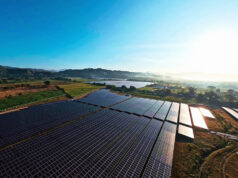
ENTITIES involved in energy efficiency (EE) projects have again called on government agencies involved in classifying projects for fiscal and other incentives to review an industry tier system before issuing specific guidelines for the endorsement of investments that will receive these perks.
In its recap of what transpired during a public consultation for a draft Department of Energy (DoE) circular, the Philippine Energy Efficiency Alliance (PE2) said that the department and the Board of Investments “should first quickly exhaust all opportunities within its policy mandate to reclassify all EE projects” as a Tier III economic activity.
Tier III projects are considered “critical to the structural transformation of the economy.” Among others, Tier III projects are granted a longer income tax holiday and enhanced deductions.
PE2 said the reclassification to Tier III from Tier I — or projects that are said to be “essential support to sectors critical to industrial development” — should be regardless of whether they are strategic or not.
It said the re-classification to Tier III economic activity would attract private sector investments.
“If the Tier III re-classification can immediately blanket all EE projects, ‘strategic’ or otherwise, then the requirement for separate endorsement guidelines for ‘strategic’ EE investments may no longer be required,” PE2 said.
“The energy efficiency sector is hoping that government policies enable the market to mobilize significant capital flows in the first decade along the 2040 pathway of bridging the P12-trillion energy efficiency capital gap,” PE2 President Alexander D. Ablaza told BusinessWorld in a Viber message.
Mr. Ablaza added that all sectors should work together to ensure that policies do not constrict capital flows given that the contribution of energy efficiency in the country’s clean energy transition is seen to be larger than that of renewable energy.
The alliance earlier said that the reclassification of EE projects from Tier I to Tier III is important to the structural transformation and industrial revolution of the economy.
In case a separate endorsement guideline is required, Mr. Ablaza recommended during the virtual meeting with the DoE on Dec. 22 that the proposed circular should shift the focus on the investing company to benefit from the incentives instead of the authorized person or entity with legal rights that is responsible for implementing the project, as stated in the initial draft.
Among the recommendations is the improvement of the language of the draft to make it accommodative to business model and investment innovations or new host entity or end user classes aside from innovative technologies.
“Introduce sufficient language affording flexibility for investment promotion agencies (IPAs) other than BoI to register and process the same set of fiscal incentives of EE projects in their respective jurisdictions,” Mr. Ablaza said, citing the Philippine Economic Zone Authority, a government agency in the Philippines attached to the Department of Trade and Industry, which promotes investments in the export-oriented manufacturing industry, as a possible agency to be promoted.
“The DoE has demonstrated a policy stance consistent with that of the energy efficiency sector. We need to see the same position upheld by BoI and Fiscal Incentives Review Board,” Mr. Ablaza said.
PE2 is a nonstock, nonprofit civil society organization that builds on the 11-year history of the Energy Service Companies Association of the Philippines and its successor, the Philippine Association of Energy Service Companies. — Marielle C. Lucenio



